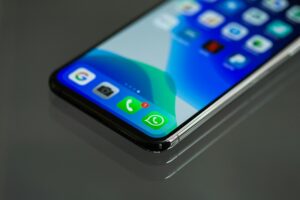💵 Budgeting as a Powerful Intent
Zero-based budgeting assigns every pound or dollar a specific purpose before you spend it—whether that's saving £200 for an emergency fund, allocating £100 to groceries, or setting aside £50 for entertainment.
👉 Imagine ending each month with all your income accounted for, giving you peace of mind and the power to prioritize what truly matters.
By treating your budget as an intentional plan, you transform money management into a tool for achieving goals, not a list of limitations.
🧘 The Stress-Relieving Effects of Financial Awareness
Knowing exactly where your money goes each month can ease anxiety that often comes with uncertainty.
- Assign every pound or dollar a clear purpose
- Make unexpected expenses less intimidating
- Reduce the chance of late payments
💡 This financial clarity reduces mental clutter, freeing up your focus for things you enjoy.
“The peace of mind that arises from seeing a plan in action transforms money from a source of stress into a tool for calm confidence.”
🎛️ How Budgeting Creates a Sense of Control
Taking charge of your finances by budgeting gives you a tangible sense of control over your money's journey.
- Use zero-based budgeting to account for every pound
- Allocate intentionally to savings, bills, or treats
✅ This proactive approach empowers you to steer your money, turning financial habits into deliberate choices.
🧠 The Psychological Benefits of Planning Your Spending
Planning ahead reduces:
- Guilt
- Impulse buying
- Stressful decisions
Your budget serves as a personal agreement, reinforcing habits that foster self-discipline while still allowing for joy.
📊 Example:
Setting aside £150 monthly for leisure means guilt-free outings, knowing the spending aligns with your broader goals.
💭 Studies show those who actively plan expenses:
- Feel more satisfied
- Experience less cognitive load
- Avoid emotional overspending
🛠️ Crafting Your First Budget: A Step-by-Step Approach
| Step | Details |
|---|---|
| 1. Identify Income & Fixed Expenses | Pin down total income and fixed costs like rent, utilities, and subscriptions. |
| 2. Outline Variable Expenses & Set Savings Goals | Track groceries, entertainment, and treat savings as non-negotiable. |
| 3. Leverage Tools & Apps | Use platforms like YNAB or Mint for automation and real-time tracking. |
💰 Identifying Income and Fixed Expenses
Start with a clear view of:
- Income after taxes
- Fixed expenses: rent, mortgage, car payments, subscriptions
✅ Once these are known, you can assign every pound or dollar a purposeful job.
🍱 Variable Expenses and Savings Goals
Variable spending includes:
- Groceries
- Coffee runs
- Spontaneous purchases
Track for a few weeks to find your baseline. Then:
- Set savings targets (e.g., emergency fund, vacation)
- Treat savings like a bill
📘 Budget example:
- Income: £1,500
- £700 fixed costs
- £500 variable expenses
- £300 savings
This ensures no money slips away unnoticed.
💡 Spotting patterns allows adjustments (e.g., reduce dining out to build savings faster).
📱 Tools and Apps to Simplify Budgeting
Consider:
- YNAB (You Need A Budget)
- Mint
- EveryDollar
These tools:
- Link to accounts
- Auto-categorize spending
- Alert you to overspending
🔁 Many incorporate zero-based budgeting, prompting intentional, daily money decisions.
🔄 Flexibility in Your Financial Plan: Adapting As You Go
Your budget isn't static.
🔧 Adjust as life changes:
- Drop unused subscriptions
- Shift funds for urgent needs (e.g., car repair)
This keeps your budget empowering, not restrictive.
🗓️ When to Review and Revise Your Budget
📅 Review monthly and especially after:
- A new job
- Moving
- Family size changes
➡️ Adjust your budget (e.g., higher winter energy bills) to stay aligned with real needs.
🚨 The Importance of Allowing for Unexpected Expenses
Add a buffer for:
- Medical bills
- Car repairs
- Sudden travel
💡 Tip: Allocate 5–10% of your budget for emergencies. This builds a safety net and preserves your main budget plan.
Include a “miscellaneous” category to boost resilience.
Tracking unexpected costs also helps identify patterns and prepare more effectively next time.
🧾 To Wrap Up
“The power of a budget lies in telling your money exactly where to go.”
Use zero-based budgeting to:
- Assign every dollar or pound
- Cover essentials, savings, and fun
✅ This ensures financial control, supports your goals, and brings peace of mind.




